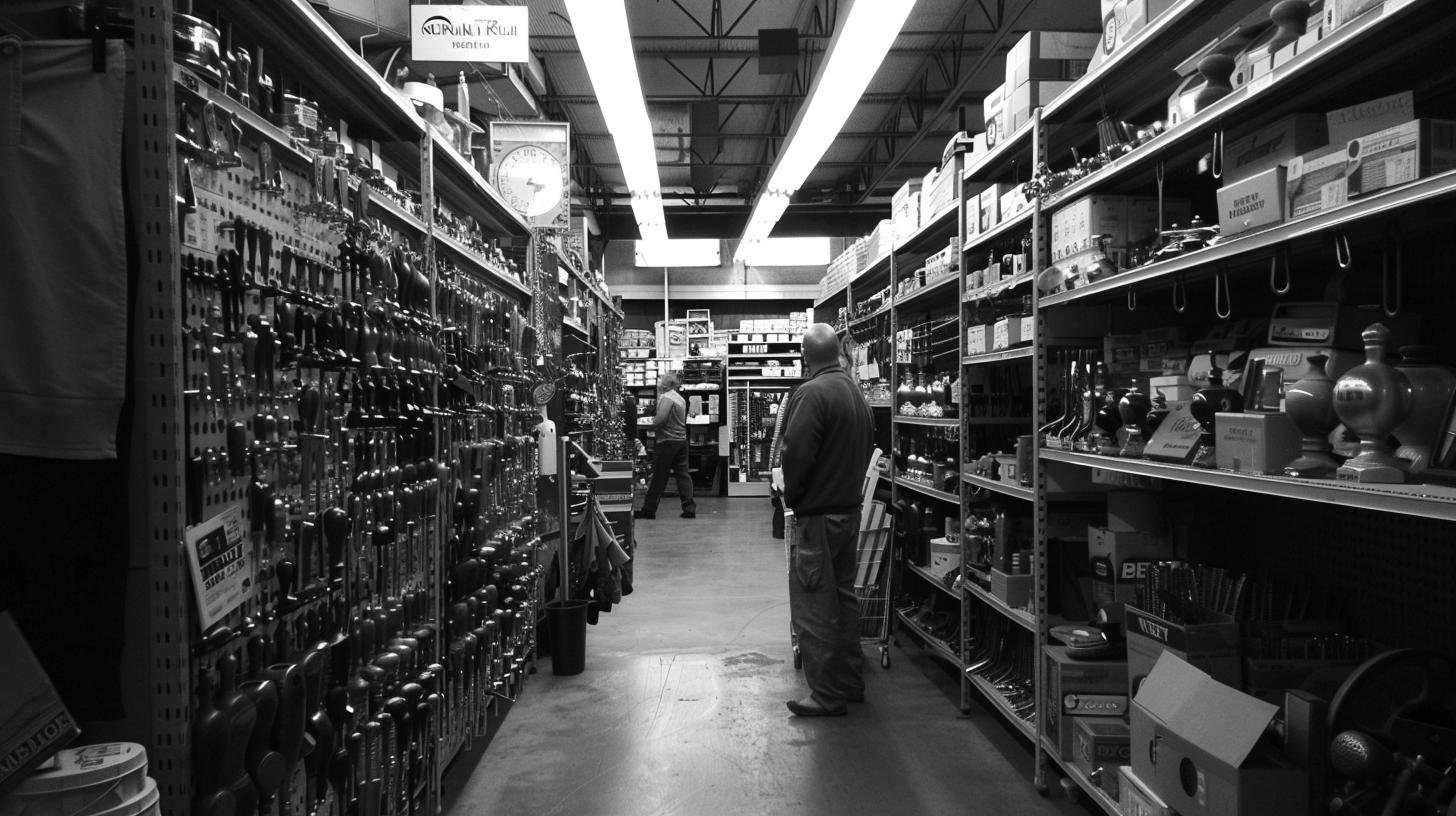Is your door hardware ordering process full of stress and inefficiencies? Imagine saving time, reducing headaches, and cutting procurement costs with a streamlined system. Mastering the art of efficient order management not only ensures smoother operations but also maximizes resource utilization for any home improvement project. This post will guide you through effective steps to streamline your orders, from leveraging digital tools to refining supplier selection—equipping you with the knowledge to transform your ordering process into a well-oiled machine. Discover the key to hassle-free and cost-effective door hardware procurement in the paragraphs that follow.
Steps to Streamline Your Door Hardware Ordering Process
Streamlining the door hardware ordering process is essential for enhancing efficiency and reducing procurement costs. An efficient workflow not only saves time but also minimizes errors that can lead to costly delays. Utilizing modern solutions like the easy-to-use online system offered by DoorsForPros can significantly optimize order workflows. This system ensures consistent pricing, making it easier to predict procurement expenses. Implementing a structured approach with a checklist can further improve order accuracy, ensuring that all necessary components are included in each order.
- Select Reliable Suppliers: Choose vendors with a strong reputation for quality and timely delivery.
- Utilize Digital Tools: Adopt procurement software and order management systems to automate processes.
- Optimize Inventory Management: Regularly review inventory levels to align with demand and prevent overstocking or stockouts.
- Implement a Checklist System: Use a detailed checklist to verify order accuracy before submission.
- Regularly Review Processes: Continuously assess and refine ordering procedures to enhance efficiency.
Focusing on order accuracy and cost reduction is crucial in the procurement process. By reducing errors, businesses can avoid the expenses associated with returns and reorders. Optimizing the ordering process also contributes to cost savings by streamlining workflows and ensuring that each purchase aligns with project needs and budget constraints.
Selecting Reliable Door Hardware Suppliers

Choosing reliable suppliers for door hardware is fundamental to streamlining the ordering process. A dependable supplier ensures consistent product quality, timely delivery, and competitive pricing, which are critical components in maintaining an efficient supply chain. Reliable vendors help mitigate risks associated with delays and defects that can disrupt project timelines and increase costs. By optimizing supplier selection, businesses can enhance their procurement efficiency and achieve better project outcomes.
- Reputation: Prioritize suppliers with a proven track record and positive customer feedback.
- Product Quality: Ensure the vendor consistently provides high-quality hardware that meets industry standards.
- Delivery Efficiency: Assess the supplier’s ability to deliver orders on time consistently.
- Customer Service: Evaluate the level of support and responsiveness offered by the supplier.
Starlight Hardware is an exemplary option for those seeking a trustworthy door hardware manufacturer and wholesaler. Known for its reliability and high standards, Starlight Hardware offers a wide range of quality products and exceptional customer service. Choosing a supplier like Starlight Hardware can significantly reduce uncertainty in the ordering process, leading to more predictable and successful project outcomes.
Implementing Digital Tools for Order Management
Utilizing digital tools for order management can significantly enhance the efficiency and accuracy of door hardware procurement. Digital procurement methods streamline the purchasing process by providing user-friendly interfaces and real-time data access, which can help reduce manual errors and improve decision-making. For example, DoorsForPros offers an online system with intuitive search tools that simplify product selection and ensure consistent pricing. With digital tools, businesses can manage their orders more effectively, leading to improved workflows and reduced procurement costs. By integrating these tools into their operations, companies can align their purchasing strategies with their overall business goals.
- Procurement Software: Facilitates the automation of purchasing tasks and improves order accuracy.
- Order Tracking Systems: Enables real-time monitoring of order status and shipment progress.
- Inventory Management Tools: Assist in maintaining optimal stock levels and preventing stockouts.
- Supplier Management Platforms: Enhance vendor communication and streamline supplier selection.
- Budget Management Software: Helps track spending and ensures procurement aligns with financial constraints.
- E-Procurement Platforms: Provide a centralized system for managing all purchasing activities.
Advantages of Automated Ordering Systems
Automated ordering systems play a crucial role in reducing errors and lead times. By automating repetitive tasks, these systems minimize human error, ensuring that orders are accurate and complete. They also accelerate the ordering process by reducing the time required for manual data entry and approval workflows. This efficiency allows businesses to respond more quickly to changes in demand and maintain competitive lead times. Furthermore, automation provides valuable insights through data analytics, enabling businesses to refine their strategies and improve overall procurement performance.
Best Practices for Inventory and Supply Chain Optimization

Optimizing inventory and supply chain processes in door hardware procurement is paramount to reducing lead times and minimizing costs. Streamlined supply chain integration ensures that all components are available when needed, preventing costly project delays. Efficient supply management involves closely monitoring stock levels and implementing just-in-time inventory practices, which help maintain optimal inventory levels without overstocking. This balance between supply and demand minimizes waste and capital tied up in unsold inventory. By focusing on these elements, businesses can improve their procurement efficiency and reliability, leading to smoother operations and increased customer satisfaction.
Demand forecasting plays a crucial role in aligning inventory levels with actual needs. By using historical data and market trends, businesses can predict future demand more accurately, ensuring that their inventory levels are neither excessive nor insufficient. This proactive approach to inventory management allows companies to respond quickly to changes in demand, reducing excess stock and associated costs. By integrating demand forecasting into their procurement strategies, businesses can achieve more predictable and efficient supply chain operations.
Enhancing Supplier Relationships for Better Procurement Outcomes
Strong supplier relationships are essential for achieving procurement success in the door hardware industry. How do supplier relationships affect procurement? Precise answer: They lead to better pricing and service levels. By fostering positive interactions with suppliers, businesses can secure favorable terms that enhance their competitive edge. Effective supplier relationship management (SRM) involves consistent engagement with vendors to ensure alignment with business goals and expectations. This alignment not only streamlines vendor negotiations but also paves the way for long-term strategic partnership development.
- Regular Communication: Maintain open and frequent dialogue with suppliers to build trust and address potential issues promptly.
- Performance Monitoring: Continuously assess supplier performance against agreed metrics to ensure quality and reliability.
- Joint Planning: Collaborate with suppliers on forecasting and inventory management to optimize the supply chain.
- Conflict Resolution: Establish clear procedures for addressing disputes to maintain a positive working relationship.
Strategic partnerships with suppliers offer numerous benefits, such as improved collaboration and innovation. Why is it beneficial to develop strategic partnerships with suppliers? Precise answer: They enhance collaboration and innovation. These partnerships help businesses leverage supplier expertise and resources, leading to more efficient procurement processes and innovative solutions. By investing in these relationships, companies can achieve more predictable procurement outcomes and maintain a robust supply chain.
Final Words
Streamlining the door hardware ordering process is vital for efficiency and cost reduction. By selecting reliable suppliers, such as Starlight Hardware, and integrating digital tools for order management, the process becomes smoother and more reliable. Implementing best practices in inventory and supply chain optimization further enhances operational success.
Developing strong supplier relationships ensures better procurement outcomes and favorable terms. These strategies support a hassle-free approach to door hardware procurement. Adopting these methods will streamline your door hardware ordering process, minimize errors, and maximize cost-effectiveness.
FAQ
Q: What are the types of door hardware functions?
A: Types of door hardware functions include passage, privacy, entry, and classroom functions. These determine how a door operates and the level of access control required.
Q: What are common types of door handles and locks?
A: Common types of door handles and locks are lever handles, knob handles, deadbolts, and mortise locks. Each offers varying degrees of security and usability.
Q: What are the commercial door hardware types?
A: Commercial door hardware types include panic exit devices, automatic door closers, heavy-duty hinges, and access control systems. They meet the demands of high-traffic areas.
Q: What types of door hardware are used for passage and privacy?
A: Passage hardware is non-locking, suitable for open spaces, while privacy hardware locks from the inside, ideal for bathrooms and bedrooms.
Q: What is Emtek Door Hardware?
A: Emtek offers customizable door hardware solutions, known for quality designs in diverse styles, which enhance both residential and commercial aesthetics.
Q: Are all front door handles the same size?
A: Front door handles vary in size. It’s essential to measure your door’s thickness and backset to choose the right handle size.
Q: How can one streamline the door hardware ordering process?
A: A streamlined process involves:
- Selecting reliable suppliers.
- Utilizing online systems.
- Maintaining a checklist for accuracy.
- Adopting digital tools for efficiency.
- Regularly updating inventory management.
Q: What criteria should be used for selecting reliable door hardware suppliers?
A: Criteria for selecting suppliers include:
- Reputation in the industry.
- Product quality.
- Consistency in delivery performance.
- Competitive pricing.
Q: What digital tools aid in order management for door hardware?
A: Digital tools include:
- Procurement software for easy ordering.
- Order tracking systems for real-time updates.
- Inventory management tools to optimize stock levels.
Q: What are the advantages of automated ordering systems?
A: Automated ordering systems reduce errors, decrease lead times, standardize processes, and improve overall efficiency in procurement.





